Revitalize Your Outdoor Cleaning with Pressure Washers
Pressure washers are powerful tools that can make outdoor cleaning tasks a breeze. Whether you need to remove dirt, grime, mold, or algae from surfaces like patios, driveways, vehicles, or outdoor furniture, a pressure washer can deliver fast and effective results. In the UK, where outdoor maintenance is essential due to the climate, pressure washers are popular among homeowners looking to keep their outdoor spaces clean and well-maintained.
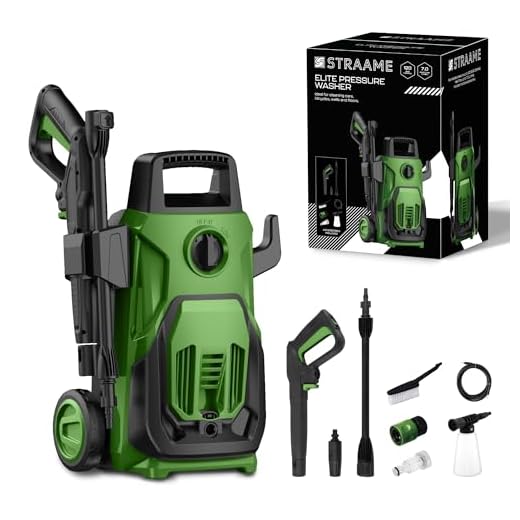



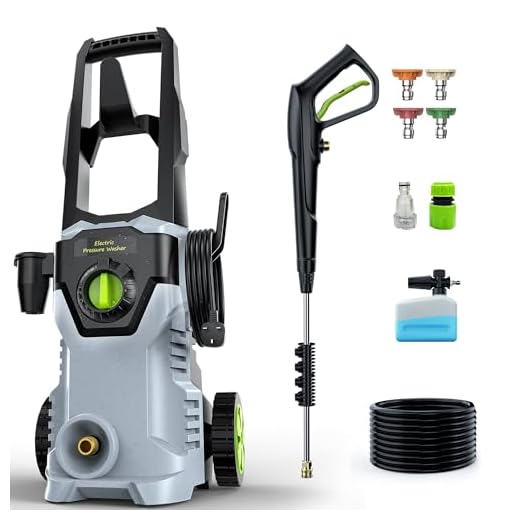
Types of Pressure Washers
There are two main types of pressure washers: electric and gas-powered.
- Electric Pressure Washers: Electric pressure washers are typically lighter, more compact, and easier to maneuver than gas-powered models. They are suitable for light to medium-duty tasks, such as cleaning patio furniture, vehicles, and small outdoor areas. Electric pressure washers are also quieter and emit no exhaust fumes, making them suitable for indoor use in well-ventilated areas.
- Gas-Powered Pressure Washers: Gas-powered pressure washers are more powerful and better suited for heavy-duty cleaning tasks, such as removing stubborn stains, paint, or mildew from large outdoor surfaces like driveways, decks, and fences. They offer greater mobility and can be used in areas where access to electricity is limited. However, gas-powered pressure washers are typically heavier, louder, and emit exhaust fumes, requiring outdoor use in well-ventilated areas.
Key Considerations Before Buying
Before purchasing a pressure washer, consider the following factors to ensure you choose the right one for your needs:


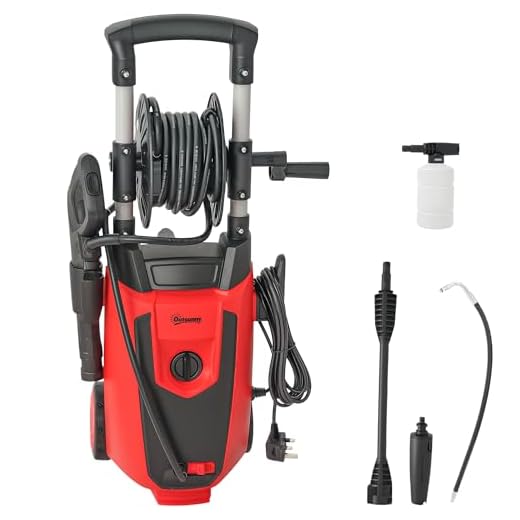


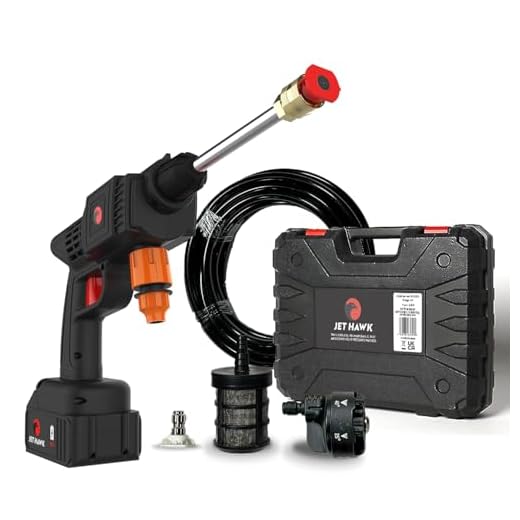



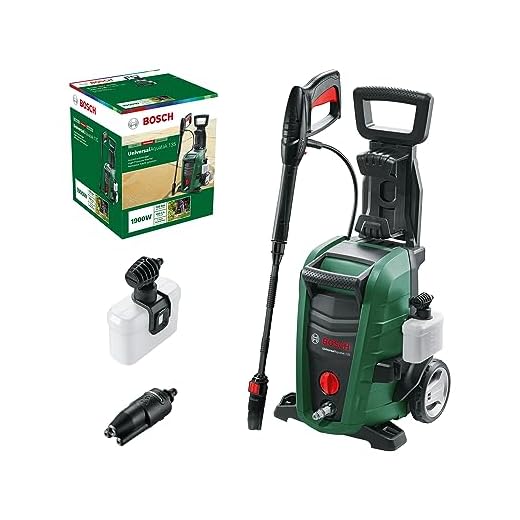
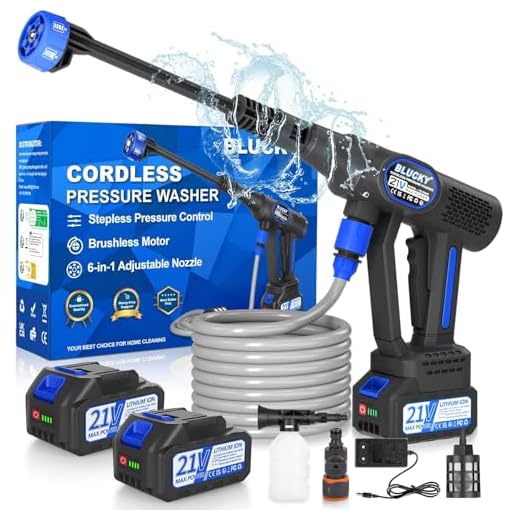

- Power and Performance: Determine the level of cleaning power you require based on the tasks you need to tackle. Consider factors such as pressure (measured in pounds per square inch, or PSI) and flow rate (measured in gallons per minute, or GPM) to gauge the performance of the pressure washer.
- Portability and Maneuverability: Evaluate the weight and size of the pressure washer to ensure it’s easy to transport and maneuver, especially if you need to move it around frequently or use it on elevated surfaces.
- Accessories and Attachments: Look for pressure washers that come with a variety of accessories and attachments, such as spray nozzles, extension wands, and detergent tanks. These additional features can enhance the versatility and effectiveness of the pressure washer for different cleaning tasks.
- Price and Budget: Set a budget for your pressure washer purchase and explore options within your price range. Consider the long-term value and durability of the pressure washer when evaluating its cost.
- Noise Level: Consider the noise level of the pressure washer, especially if you plan to use it in residential areas where noise restrictions may apply. Electric pressure washers are generally quieter than gas-powered models.
Pros and Cons of Pressure Washers
Understanding the advantages and limitations of pressure washers can help you make an informed decision:
- Pros:
- Efficiently removes dirt, grime, and stains from various surfaces.
- Reduces cleaning time and effort compared to manual scrubbing.
- Can be used for a wide range of outdoor cleaning tasks.
- Offers adjustable pressure settings for different cleaning needs.
- Helps prolong the lifespan of outdoor surfaces and equipment.
- Cons:
- May cause damage to delicate surfaces or objects if used incorrectly.
- Requires proper safety precautions, including eye and ear protection.
- Can be noisy, especially gas-powered models.
- May require regular maintenance, such as nozzle cleaning and pump maintenance.
- Initial cost and ongoing maintenance expenses may be higher compared to manual cleaning methods.
Usage Tips
To maximize the effectiveness and safety of your pressure washer, consider the following tips:
- Read the Manual: Familiarize yourself with the manufacturer’s instructions and safety guidelines before operating the pressure washer.
- Test on a Small Area: Before tackling larger cleaning tasks, test the pressure washer on a small, inconspicuous area to ensure it’s suitable for the surface and won’t cause damage.
- Maintain Proper Distance: Maintain a safe distance between the pressure washer nozzle and the surface being cleaned to prevent damage. Start with a wider spray pattern and gradually move closer as needed for stubborn stains.
- Use the Right Nozzle: Choose the appropriate spray nozzle for the task at hand, adjusting the pressure and spray pattern as needed for optimal cleaning results.
- Protect Yourself: Wear appropriate safety gear, including eye protection, ear protection, and sturdy footwear, when operating the pressure washer to prevent injuries from flying debris and loud noise.
Shopping Online for Pressure Washers
When shopping for pressure washers online, consider the following tips to find the right one for your cleaning needs:
- Compare Features: Compare the features and specifications of different pressure washers to ensure they meet your requirements in terms of power, performance, and accessories.
- Read Customer Reviews: Read reviews from other buyers to gauge the quality and reliability of the pressure washer. Look for feedback on performance, durability, and ease of use.
- Consider Brand Reputation: Choose pressure washers from reputable brands known for their quality and customer satisfaction. Research the brand’s reputation and warranty coverage before making a purchase.
- Check for Deals and Discounts: Look for promotions, sales, and bundle offers to save money on your pressure washer purchase. Consider factors such as free shipping, warranty coverage, and return policies when evaluating the overall value.
Choosing the Right One
Choosing the right pressure washer depends on your specific cleaning needs, budget, and preferences. Consider factors such as power, portability, accessories, and price when making your decision. Opt for a pressure washer that offers the right balance of performance, convenience, and value for your outdoor cleaning tasks.
Caring for Your Pressure Washer
To ensure the longevity and optimal performance of your pressure washer, follow these maintenance tips:
- Clean the Nozzles: Regularly clean the spray nozzles to remove any debris or mineral deposits that may affect performance.
- Flush the System: Flush the pressure washer system with clean water after each use to remove any detergent or debris from the pump and hoses.
- Inspect and Replace Parts: Periodically inspect the hoses, fittings, and seals for signs of wear or damage, and replace any worn or damaged parts as needed.
- Store Properly: Store the pressure washer in a dry, well-ventilated area away from direct sunlight and extreme temperatures. Drain any remaining water from the system to prevent freezing and damage during cold weather.
- Follow Maintenance Schedule: Adhere to the manufacturer’s recommended maintenance schedule for your pressure washer, including oil changes, pump maintenance, and filter replacements, to ensure optimal performance and longevity.
Frequently Asked Questions
-
- 1. Can I use a pressure washer to clean my car?
Yes, pressure washers can be used to clean cars, but it’s essential to use the appropriate pressure setting and nozzle to avoid damaging the paint or causing water ingress. Use a wide spray pattern and low-pressure setting, and keep the nozzle at least 12 inches away from the car’s surface.
-
- 2. Can I use a pressure washer to clean my patio?
Yes, pressure washers are ideal for cleaning patios, driveways, and other outdoor surfaces. Use a medium-pressure setting and appropriate spray nozzle to remove dirt, grime, and stains without damaging the surface. Sweep away any loose debris before using the pressure washer, and avoid spraying directly on delicate surfaces or joints.
-
- 3. Are pressure washers safe to use on wooden surfaces?
Pressure washers can be used on wooden surfaces, but it’s essential to use the appropriate pressure setting and technique to avoid damaging the wood. Use a wide spray pattern, low-pressure setting, and keep the nozzle moving to prevent streaking or gouging. Test the pressure washer on a small, inconspicuous area first to ensure it’s safe for the wood.
-
- 4. Can I use a pressure washer indoors?
Electric pressure washers can be used indoors in well-ventilated areas, such as garages or workshops, where access to electricity is available. Gas-powered pressure washers should only be used outdoors due to the emission of exhaust fumes.
-
- 5. How often should I perform maintenance on my pressure washer?
The frequency of maintenance depends on the usage and manufacturer’s recommendations. Generally, it’s recommended to perform basic maintenance tasks, such as cleaning the nozzles and flushing the system, after each use. More extensive maintenance, such as oil changes and pump inspections, may be required periodically based on the manufacturer’s guidelines.
In Conclusion
Pressure washers are versatile tools that can simplify and accelerate outdoor cleaning tasks, from washing vehicles to cleaning driveways and patio furniture. By choosing the right pressure washer for your needs, following proper usage and maintenance guidelines, and taking appropriate safety precautions, you can achieve professional-quality results and keep your outdoor spaces looking their best year-round.






